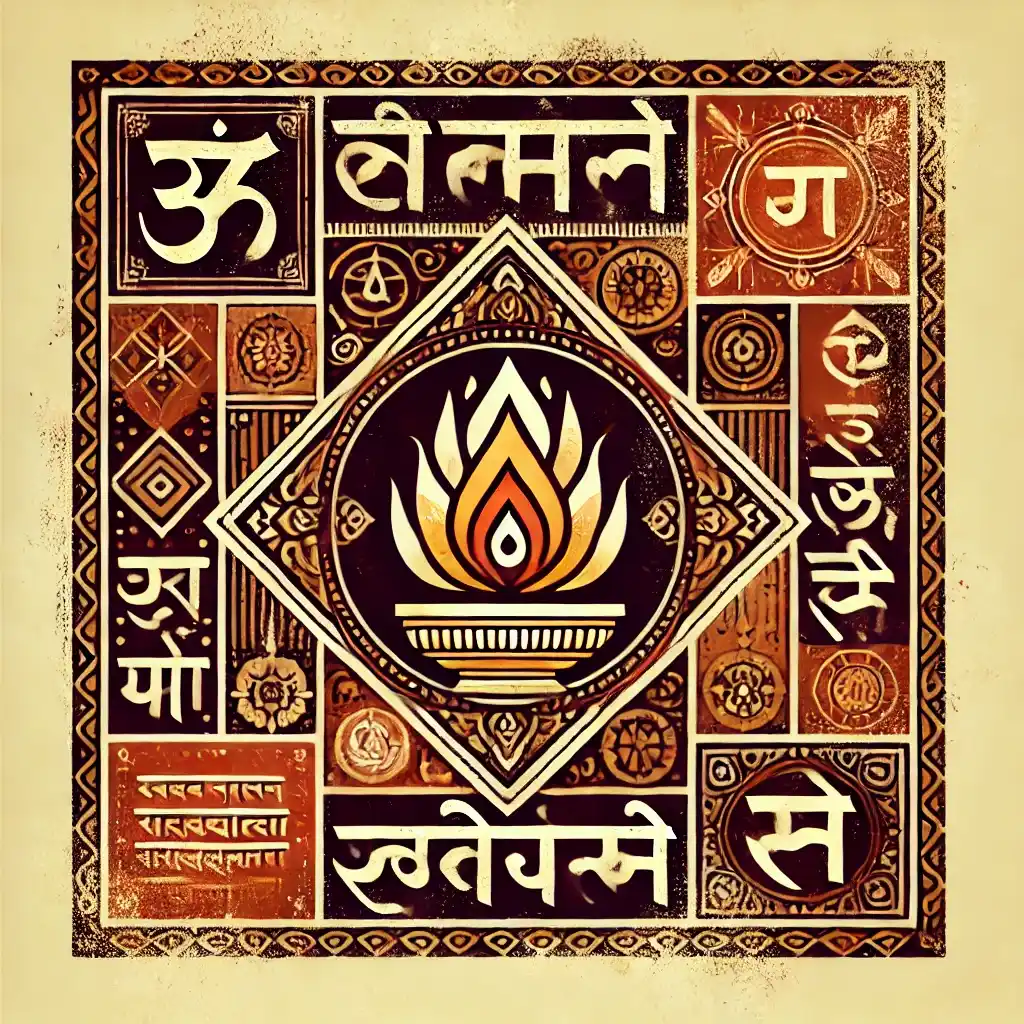
The Vedas
The Yajurveda
The Vedic Handbook for Rituals and Sacrifices
The Yajurveda is one of the four Vedas, which are the foundational scriptures of Hinduism. Known as the "Veda of Yajus" (sacrificial formulas), it is primarily a manual for conducting rituals and sacrifices. The Yajurveda plays a crucial role in the Vedic tradition, focusing on the procedural aspects of rituals, making it unique compared to the other Vedas.
Origin and Composition
The Yajurveda, like the other Vedas, is believed to have been composed between 1200 and 1000 BCE during the late Bronze Age in ancient India. The term "Yajurveda" is derived from two Sanskrit words: "Yajus," meaning sacrifice or worship, and "Veda," meaning knowledge. The Yajurveda is thus a compendium of sacrificial formulas and prayers, which are recited by the priests during religious ceremonies.
The Yajurveda is divided into two main sections:
Shukla Yajurveda (White Yajurveda): This version consists of clear and organized verses known as mantras, which are recited during the rituals. It is also referred to as the Vajasaneyi Samhita, named after the sage Vajasaneya who is traditionally credited with this section.
Krishna Yajurveda (Black Yajurveda): This version is a combination of verses and prose explanations, making it less organized than the Shukla Yajurveda. The Krishna Yajurveda contains detailed instructions and explanations of the rituals alongside the mantras.
The Yajurveda is further divided into several branches (shakhas), each with its own interpretation and presentation of the texts. The most prominent branches of the Shukla Yajurveda are the Madhyandina and Kanva, while the Krishna Yajurveda is divided into branches such as the Taittiriya Samhita.
Content and Structure
The Yajurveda is unique because it is a practical guide to performing Vedic rituals rather than a philosophical or poetic text like the Rigveda or Samaveda. It contains:
Mantras: Sacred chants or prayers that are recited during the performance of rituals. These mantras are often addressed to various Vedic deities such as Agni, Indra, and Soma.
Yajus: Prose instructions that explain how to perform the rituals, including the preparation and offering of the yajna (sacrificial fire) and other ceremonial activities.
Brahmanas: Prose texts that provide the theological and philosophical context of the rituals. They offer explanations and significance of the rituals and are essential for understanding the deeper meaning of the mantras.
The Yajurveda also includes detailed descriptions of various rituals such as the Ashvamedha (horse sacrifice), Rajasuya (royal consecration), and Soma Yajna (sacrifice of the Soma plant). These rituals were not only religious practices but also held significant socio-political importance in Vedic society.
Philosophical Significance
While the Yajurveda is primarily focused on the ritualistic aspects of Hinduism, it also offers insights into the philosophical and spiritual dimensions of Vedic religion. The rituals described in the Yajurveda are seen as a means to maintain cosmic order (rita) and ensure the prosperity of the community.
The Yajurveda also emphasizes the importance of discipline, precision, and the correct performance of rituals. The idea is that by following the prescribed rituals, one can align with the cosmic order and achieve harmony in both the material and spiritual realms.
Impact on Hindu Rituals and Culture
The Yajurveda has had a lasting impact on Hindu rituals and culture. Many of the rituals and ceremonies described in the Yajurveda are still performed today, albeit with some modifications. The Vedic sacrificial rituals, particularly those involving fire (homa), are central to many Hindu ceremonies, including weddings, housewarmings, and other auspicious occasions.
Moreover, the Yajurveda has influenced various aspects of Hindu philosophy and theology. The concept of karma (action) and its effects, which is central to Hindu thought, is closely linked to the ritualistic practices outlined in the Yajurveda. The text suggests that performing the right actions and rituals leads to positive outcomes, both in this life and beyond.
Preservation and Transmission
The Yajurveda, like other Vedic texts, was preserved through an oral tradition known as shruti (hearing). The recitation of the Yajurveda required precise pronunciation and intonation, ensuring that the mantras and instructions were transmitted accurately across generations.
Over time, the Yajurveda was written down, and various commentaries were composed to explain its complex rituals and mantras. The most well-known commentary on the Yajurveda is the Shatapatha Brahmana, which provides detailed explanations of the rituals and their significance.
Yajurveda and Modern Hinduism
In modern Hinduism, the Yajurveda continues to be revered as a sacred text, and its influence can be seen in various religious practices. While the elaborate Vedic sacrifices described in the Yajurveda are less common today, the principles and values it espouses continue to guide Hindu rituals and spiritual practices.
The Yajurveda also serves as a reminder of the rich ritualistic heritage of Hinduism and the importance of maintaining a connection with the divine through disciplined action. It underscores the idea that spirituality is not just about contemplation but also about active participation in sacred rituals that honor the divine and uphold the cosmic order.
Conclusion
The Yajurveda stands as a testament to the ritualistic and spiritual heritage of Vedic India. It offers a unique blend of practical guidelines for rituals and profound philosophical insights, making it an essential part of Hindu scripture. The text's emphasis on precise execution of rituals, coupled with its underlying spiritual principles, reflects the holistic approach to religion and spirituality that is characteristic of the Vedic tradition.

Explore the latest and most popular products available on Amazon, handpicked for your convenience! Whether you're shopping for tech gadgets, home essentials, fashion items, or something special, simply click the button below to view the product on Amazon. We’ve partnered with Amazon through their affiliate program, which means that if you make a purchase through this link, we may earn a small commission at no extra cost to you. This helps support our site and allows us to continue providing valuable content. Thank you for your support, and happy shopping!